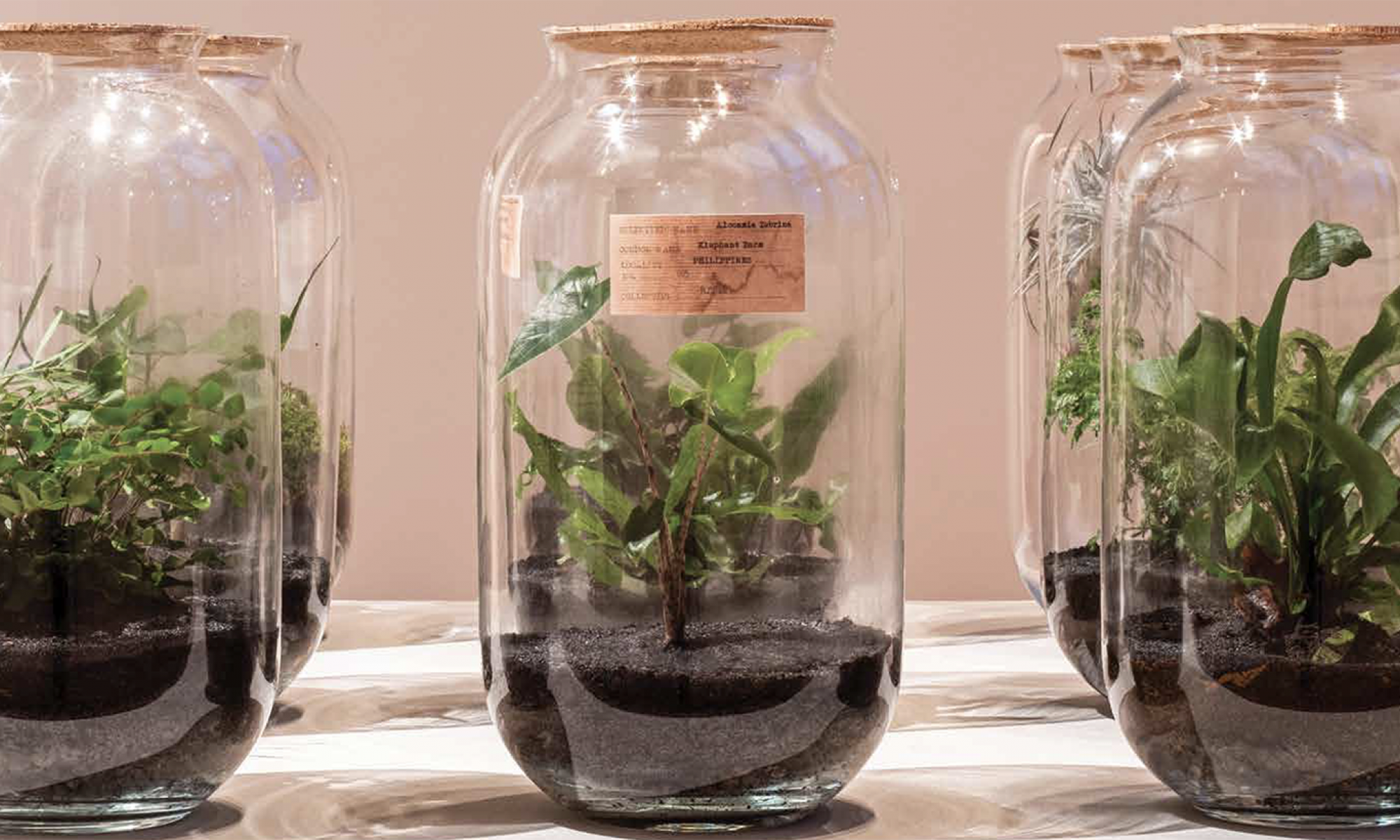Decolonial Gardening: Libby Harward’s Ngali Ngariba at Gropius Bau
Inside and outside
A terrarium is a world under a dome. Planted in a small scoop of aerated, moss-covered soil, terraria inhabitants live their lives in a self-sustaining bubble. The glass architecture enables a balanced microenvironment, regulating the conditions essential to vegetal needs, while offering protection from the many elemental, animal and human forces that can take a tender plant’s life. The terrarium, however, takes something from the plant: its freedom, since growth is forever dictated by the limits of its walls. The shield, in other words, is also a prison.
A garden differs from a terrarium in its porosity, vulnerability and need for human attention. Mulching, weeding, feeding, watering, pruning and raking—practices that make the noun into a verb—are needed to maintain the garden’s distinction from wilderness. But the garden does share some features with the terrarium; as planted worlds, galleries of the chosen, they are defined by who is let in and who is kept out.
Title image:
Libby Harward
Ngali Ngariba – We Talk, 2019
Photograph: Mathias Voelzke. Courtesy of the artist

